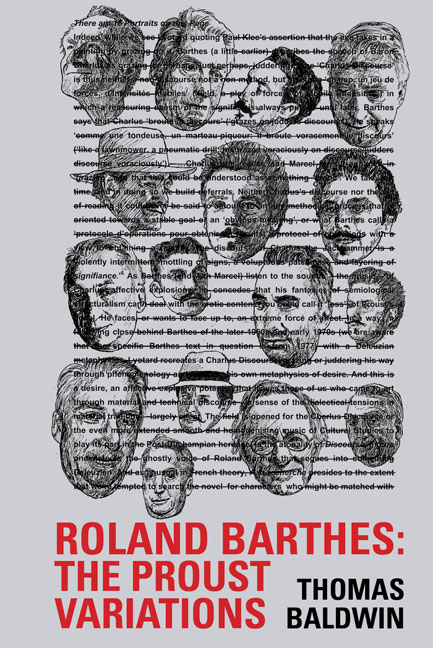4 - Neutral, Nuance
Summary
Proust's mature novel may have contributed to a process of linguistic solidification that began towards the middle of the nineteenth century and established literary language as an opaque and weighty substance, as the stuff of a ‘Littérature-Objet’, but it was Albert Camus's L’Étranger (1942), Barthes argues, that inaugurated a ‘new’ writing that is neutral.2 In Camus's work, écriture (which, for Barthes, is a formal reality chosen by writers that is positioned between their language and their style, neither of which they are able to choose) has acquired the silence of a pure equation and is no thicker than an ‘algebra’. Camus's thin and colourless – strictly speaking, white – writing (écriture blanche) is analogous to a linguistic third or neutral term, a zero element, because it is freed from all bondage to ordering hierarchies of usage (Camus famously avoids using the past historic tense in his first novel). It is also ‘indicative’, ‘amodale’ (I, 217) and robustly non-committal: while it may position itself among the emotive judgements and blurtings of journalism, for example, it is able to do so, Barthes suggests, without fully attaching itself to any of them.
It does not follow from this, of course, that Barthes sees nothing of the neutral in À la recherche (or, indeed, that Barthes's work invites us to do the same), or that the neutrality of Proust's work is to be entirely disconnected from Camus's bleached, degree-zero production. As we have seen, Barthes's writing on Proust suggests that the neutral twinklings7 of À la recherche are located not within a writerly purity, a Camusian innocence or style of absence that is ‘almost an ideal absence of style’, but in its capacity to thwart a variety of paradigms that are made – by Barthes – of an opposition between the classical and the modern. For example, Marcel's proxemic ordeals reveal a classical distance at the heart of an extreme, modern closeness; the occulting eroticism of the ‘Charlus-Discourse’, its unstable rhythm and supplementary logic, is such that structural analysis, which comprehends the classical work’s cultural codes, cannot be separated cleanly from a (non-structural) mode of critical attention that considers the role of affective forces and the position of subjects within discourse (and which, as we shall see later on, resonates with, but is by no means identical to, what Barthes calls ‘pathetic criticism’);
- Type
- Chapter
- Information
- Roland Barthes: The Proust Variations , pp. 131 - 164Publisher: Liverpool University PressPrint publication year: 2019



